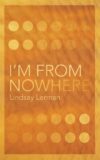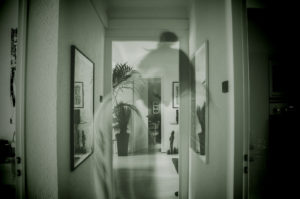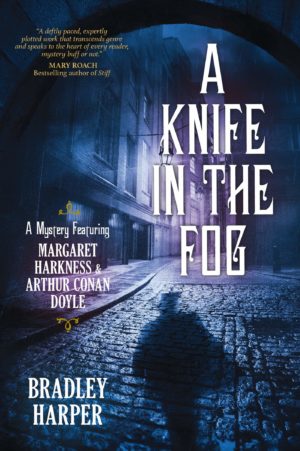Drive
She is a nurse at the hospital in the Northwest and doesn’t own a car. I later learned that she can’t drive and doesn’t have the time to learn either. Her hours are from four to midnight, and often she misses her last bus. Since a lot of drivers don’t like going all the way to the Northwest, I go instead. Interestingly enough, she asks for me, although I have never introduced myself to her.
I watch her come out of the hospital, walking towards my car. I unlock the doors. She always sits at the back; a lot of women do that. And once they have buckled up, they would grab their phones and start typing or swiping until I have taken them home. But she is different. She usually picks something to focus on like the back of the passenger’s seat, or she looks outside in the calmest way. Every now and then, she asks me a question, and it would catch me off guard. She breaks the silence when I least expect it.
“This route must bore the hell out of you by now,” she says.
I look in the rear-view mirror and see a smile on her face. I instantly smile back at her, trying to think of something to say.
“I like it in the Northwest. It’s less busy.”
Her gaze is glued at the passenger’s seat again, and I’m not sure if she has actually heard me.
She lives south of downtown, which is about fifteen minutes’ drive. This is usually the most peaceful drive for me. With her in the backseat, I don’t have to feel like I need to initiate small talk like with other customers.
By the time we reach downtown, there are more people out and about – all dressed up for their Friday night out. Some are waving at me to stop without realizing that my lights are off signalling occupied.
I stop outside her apartment building.
“Thank you. Have a good night,” she says and hands me the cash with 20% gratuity.
“Thanks, you too.”
As she steps out of the car, I see a man running towards me, waving. I don’t usually take random people that haven’t ordered via the phone or the app, but weekends are different. He opens the door on the passenger’s side and hops in. The entire car wobbles at his weight.
“Good timing, bud! To Jameson’s pub on Seventeenth, please.”
“Sure thing,” I say.
I make a U-turn, and before I lose sight of the apartment building, I throw a brief look at the lobby and see her standing face-to-face with a man.
“How is your night going so far, brother?” the fat man says.
“So far, so good.”
“I’ve known your company for a while, and I’m surprised that you’re not an Indian guy!”
I don’t know what to say, except for smiling politely. As I stop in front of the traffic lights, I notice that he’s still looking at me, expecting some form of an answer.
“Well?”
“I’m sorry, what was that?” I say.
He laughs for a while. “Can I offer you a job, brother?”
“Oh, I’m good, thanks. I have a job.”
“Seriously?” he says. “Do you really want to be driving for the rest of your life?”
I am trying to remember the elevator scene – her body language as she was standing in front of that man. I’m pretty sure she was looking down.
“This is only part-time,” I tell the fat man.
“I see, so what do you do?”
“I’m a writer.”
“Hah,” he exhales. “You’re one of those, hey?”
As soon as the lights turn green, I hit gas and drive faster than I am supposed to. More people are trying to wave me down – not reading the sign. A crying woman runs into the road to stop me. The man that she is with grabs her by the arm and pulls her back towards him. In the mirror, I see her slap him in the face, and their argument continues.
“Fucking crazy, hey?”
The fat man grabs a cigarette and places it on the top of his ear. We’re almost there, driving past more waving people. One guy is giving me the middle finger as I drive past him and his group. The fat man winds down the car window and sticks out his middle finger at them.
“So, what do you write?”
“Anything.”
“If I asked you to write a business proposal for me, how much would it cost me?”
“It depends,” I say.
“Are you a freelancer?”
“Yes.”
“Good for you. So, you work when you want and where you want.”
I see a lineup of people waiting for cabs outside the pub and decide to keep my lights off to avoid picking up drunk people.
“Thanks, bud! That’s for you.” The fat man hands me the cash with 50% gratuity.
“Thanks, sir. Have a good night.”
My next customers are a man and a woman. They have most likely just hooked up in the bar and are looking to get laid. All I hear are sucking sounds in the backseat. The moment she begins to moan, I know that he has put a finger inside her.
I keep replaying the lobby scene in my head. The way they were facing each other just didn’t look like they were living together.
When I arrive at that couple’s location, the guy simply throws two $20 notes at me and closes the door behind him- still kissing the woman. I decide to return to the main office and call it a night.
**
The main reason why I have this mini job is that I am nocturnal. I might be a freelance non-fiction writer, but it is at night when my sense of fiction prevails. I think of her and the peace that she brings into my car. I want to uncover her hidden sadness. I write about her shifts, how she takes care of her patients by lying to them that everything will be OK, and then she injects them with poison or smothers them with a pillow. I imagine her fuelled with anger and despair, looking to stab me from behind with a scalpel while I drive her home. I write about how she doesn’t want to die alone, but with someone that she doesn’t deserve. I write about her and the man at the elevator. They separated when she decided not to have the baby, and it was his fault – his fault for not doing anything about it.
There are too many questions with no answers. And this is where fiction comes along with possibilities. You create what you want to see, and that’s how you scratch the itch. Things have never ever been different. This is the nature of not asking.
**
I usually wake up early in the afternoon and check my emails for assignments from numerous magazines or webzines. I often miss out on the good topics and get the leftovers. For some reason, my older pieces of unfinished fiction catch my eye. And for the first time in a while, I feel like completing them in the daylight.
**
I am parked outside the hospital once again. It’s midnight, and Cinderella needs a ride home. As usual, she hops in the backseat.
“Hi,” she says. “Guess what?”
“What?”
“I’m buying a car.” Her smile widens with excitement.
I have never seen her like that. She has never talked to me like that either. I don’t know what to say or how to feel.
“Good for you. Congratulations. When did you get your license?”
“I haven’t got it yet.”
I start the engine, and just as I am about to release the brake, she says, “Hang on.”
She steps out of the car and opens the passenger door. The next thing I know is her sitting next to me. I look at her, surprised.
“Are we going?” she says.
“Sure.”
I start rolling down the street, feeling my heart in my throat. She smells like disinfectant; it could also be my car, as I’ve wiped the backseat after the other night’s incident.
“Take a left please, we’re heading to the northeast.”
“Oh, did you move?”
“No,” she laughs and says, “Let’s go to the airport.”
“OK.”
We are on the outskirts, driving up McKnight Boulevard towards the viewing area. I remember dropping people off here, but I’ve never come here by myself. It has never even occurred to me that watching planes take off is a thing. In fact, the viewing hours are already over, but no gates or signs are indicating that after-hours are not permitted.
After parking, she gets out of the car first and walks towards the fence. There are a few aircrafts ready for take-off. I didn’t realize how big the airport is. The flickering lights are, in fact, beautiful. You hear engines running, but from far away. She waves at me, gesturing for me to get out of the car. I turn off the metre.
For a second, I feel agoraphobic, and I’d rather return to the car. She might want to stab me to death during take-off for all I know.
“Do you see the plane over there?” She points at the United Airlines one.
“What about it?”
“That one is not coming back,” she says with a half-smile.
“What do you mean?”
“It’s flying to Arizona and will not come back.”
“Do you know someone on that plane?” I ask.
“Maybe. But if you think about it, who do we ever really know?” She looks at me,
“People change all the time.”
The plane is pivoting around its own axis towards the runway. It should get an increased ground speed with the current tailwind. I wonder how the pilot feels. Does he or she love a night flight as much as I love a night drive? How does it feel steering a vehicle when you’re up in the air? And how does it feel carrying over one hundred passengers on your invisible wings while taking them to their destination?
I look at the cab, and a sudden feeling of worthlessness befalls me. I take people to a destination, which is not mine. And I ask them questions I don’t care about.
I remember my first flight when I was younger. The moment the plane was off the ground, I wanted to wake up. It was the exact same sensation as a falling dream during a hypnagogic state of mind.
However, I believe she has other things on her mind. The aircraft is accelerating on the runway. Her fingers are poking through the fence, her forehead pressed against it. All I hear is the sound of engines, turbines, and shouting air traffic controllers. I don’t want to watch it get off the ground, so I turn away towards the car.
“Hey,” she says. “Why are you so afraid?”
“What do you think I’m afraid of?”
She shrugs and gazes back at the plane, which is now off the ground, heading south. She is right, it’s not coming back.
“You’re afraid of asking.”
“I ask a lot of questions,” I say.
“Do you really care about the answers, though?”
I see a grin on her face.
Asking the right questions requires tact, determination and good timing. What does she know about that?
I’m inside the car, watching her stare at the plane until it recedes into the distance. For a moment, you think you’re looking at a star, but it’s not.
She slowly walks towards the car, her eyes fixed to the ground, but it’s too dark to read her face. The door opens, and a quick breeze brushes against my face.
“Hey,” I say.
“I must owe you a fair bit of money.”
“You don’t owe me anything.” I point at the metre, which is off. It looks like she’s attempting a smile, but it’s not showing. I’ve long stopped assuming that she is a serial killer. In fact, my imagination has escaped me. It no longer feels like a story. This is all too real; feels too real.
“Are you OK?” I ask.
She nods, and after a long pause, she says, “You wrote an article.”
For a second, she has me stumped. I try to figure out what kind of blogs she reads, and which publisher includes the writer’s picture in the article, as it usually has a link to the author’s biography. She may know more about me than I thought.
“You write about the importance of one’s mind. How we’re all just alone in our heads and that it’s difficult to connect with the outer world.”
She has read my essay on solipsism. She continues, “All because we’re not certain if what we experience outside our minds is real or false.”
At this moment, we watch an aircraft land smoothly, but loudly on the runway. It feels good to know that my feet are on solid ground.
“Doesn’t that make you feel lonely?” she says.
I smile at her.
“Don’t you think that the mind and the external phenomena have to coexist in order to function? No matter if you like it or not?”
“Maybe,” I say.
She lifts a hand up in the air as though signalling that my answer is not good enough.
“Everything is transient, isn’t it?” I say.
I think that’s what she has been waiting to hear. We look at the airport lights and watch how a decelerating aircraft rolls past us. It’s a United Airlines, and we both begin to laugh.
*
It’s just before midnight, and I am parked outside the hospital in my own car. I get out and lean against the passenger’s door while keeping an eye at the entrance.
I have completed the story or stories. They all have one thing in common, which is a happy end. I usually write open ends or no endings, wherever the story takes me. However, this one has got me to quit my part-time job as a driver.
I see her approach the sliding doors, but she is not alone. In fact, she is curled up in a man’s arm, as I watch them come outside. She recognizes me instantly.
“Oh hi!” she says.
The man nods at me and tells her to wait while he is going to grab his car.
“Are you on shift?” she says.
“No, I quit. This is my car.”
She throws a brief look at it, and for a moment, she is lost in thought. And then she says: “Are you picking someone up?”
I nod hesitantly as I stare at the ground. When I look up, I see a worried look in her eyes. It seems like she is about to say something, but she isn’t. I have a question to ask, but I am not asking. The man arrives in his car and stops behind me.
“Have a good night,” I tell her, smiling.
“You too,” she says.
I stare at the clear night sky and wait until I can’t hear the car anymore. I see Orion’s Belt and the flickering lights of a plane that has just departed. For some reason, I can’t help but laugh.
I get in my car and begin to drive further north. The roads are dark and empty.
**
Paula Cheung was born and raised in Hamburg, Germany. She studied Creative and Life Writing in Great Britain, where she had spent most of her time writing her first novel, Heart Like A Hole. She self-published it in August 2018 under the pseudonym Paula C. Deckard. In the meantime, while getting her brain in gear for her next novel, she blogs and writes short fiction. Paula lives in B.C., Canada.
**
Image: Flickr / Dena Burnett







